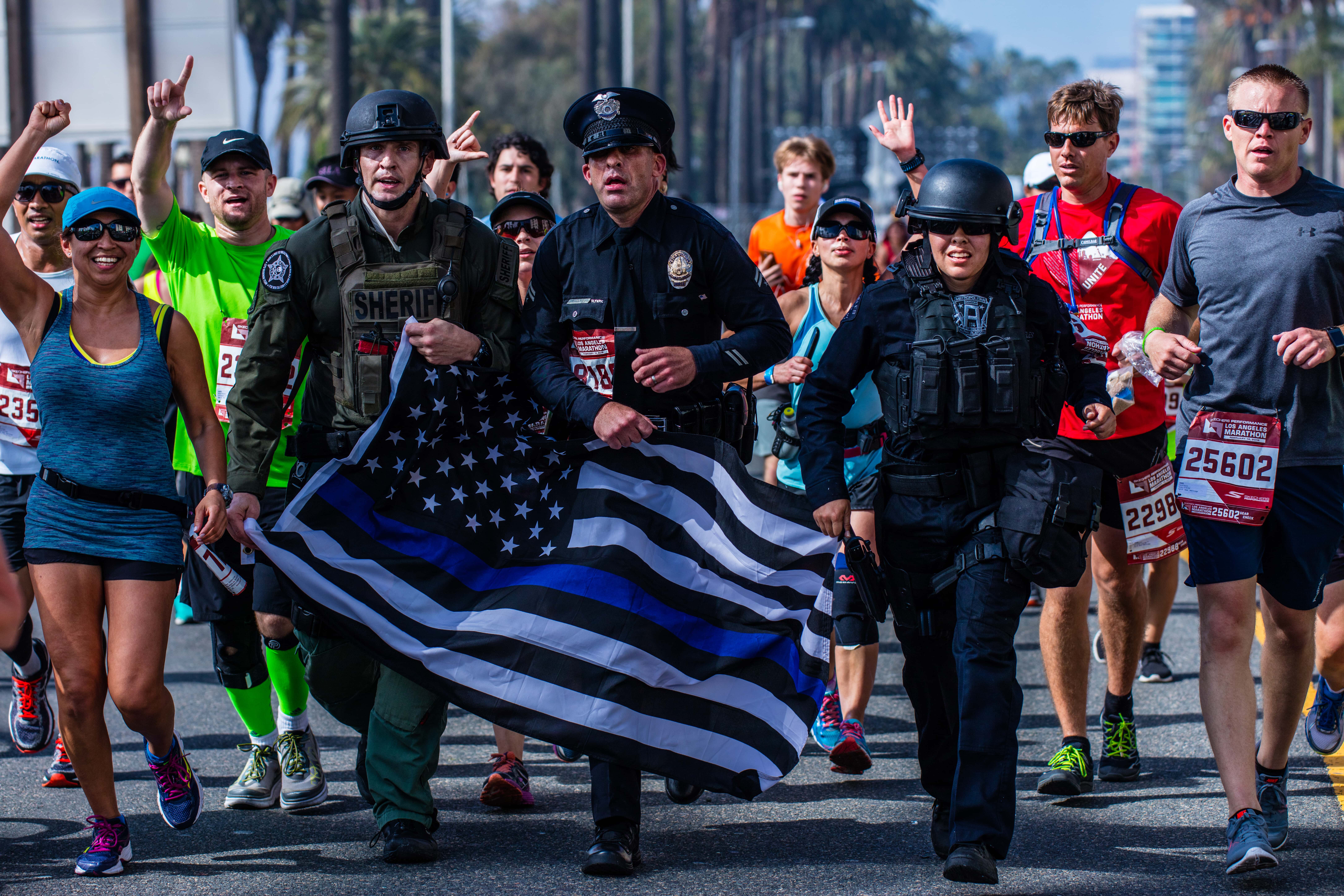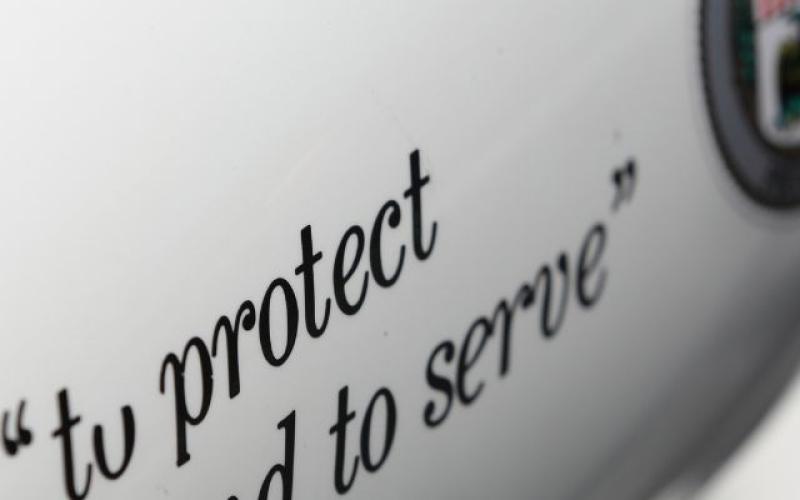THE TABLOID TIMES
By Det. Jamie McBride
It’s not surprising that LA Times Staff Writer Libor Jany is at it again. When it comes to the LAPD, he's never one to consistently present an objective set of facts to allow readers the opportunity to form their own conclusions. Mr. Jany produced a biased, unbalanced, and inaccurate article that tried to divide our membership. He wrongly characterized my recent Blue Line article about what I, and many others, believe to be LAPD's lax grooming standards while in uniform as an attack on some of our members. That simply is not true.
For LAPPL members, let me be clear: I believe wholeheartedly in my fiduciary responsibility to ensure that your legal rights are protected, including those provided by the CROWN Act. My actions with regard to members who must engage in our discipline process have been to provide quality representation for those members, and as the chair of the League's legal committee I will proudly continue to do just that.
My Blue Line article that Mr. Jany referenced, titled, Don't CROWN Me, focused on the lack of uniformity when some personnel are allowed to wear beards, man buns, long braids, and other hairstyles while in uniform that don't adhere to the standards allowed in our duty manual. The accompanying photographs depicted officers in beards, a female with a long braid down her back, and male officers with buns or mohawks. In my Blueline article, there were no male African-Americans depicted in any of the photos. But the race-baiting Time's article focused on male black officers who have skin conditions that make it difficult to shave. Subscribers who read the Times article are left with no conclusion other than that is who my article was directed towards. However, the photos used in my article are of officers from ten other California law enforcement agencies who have beards, tattoos and wild hair styles. Only one of these officers was African-American, and it's a female with a mohawk in uniform.
Mr. Jany equates compliance with the Department's grooming standards a race somehow a issue, as his article focused on one African-American officer who apparently made a personnel complaint against his lieutenant for commenting on his beard, which according to the Times, "didn't adhere to the department's on-duty grooming standards."
Grooming standards apply to all uniformed members of the LAPD. Over the last few years, hundreds of officers from all walks of life have made it a point to tell me they believe that our grooming standards are not being adhered to or enforced. This is no secret. Unfortunately, Mr. Jany chose to characterize various incidents into accusations of racism and gin up the very divisiveness his employer claims to reject.
To support his reckless claim of racism, the reporter recounted incidents from the private sector where African-American athletes faced criticism or were told to cut their hair or beards to meet ill-defined competition standards. The reporter even recounted an incident where an African-American woman was fired for not straightening her hair. What do these examples have to do with the LAPD or law enforcement grooming standards? Absolutely nothing. They only serve to fan the false narrative of racism within law enforcement. The closing paragraph includes references to the "dehumanizing legacy of chattel slavery, where people with darker skin and kinkier hair were never allowed to work indoors." This is outrageous and unbecoming of any reporter who claims to be objective. To include this in a response to an article about LAPD grooming standards is a new low.
The reporter then chose to shove all in on a personal attack toward myself in an attempt to portray me as hypocritical. The articles states that I "….proudly displays sleeve tattoos off duty and has been known to sport a goatee in the past." This cheap shot fails to recognize that my entire article was related to police officers on duty and in uniform, not off duty. Libor Jany again, failed to include what I said about tattoos, including my own. This is what I wrote in my article; "Now let's talk about tattoos. During our four days of ratification, I saw uniformed officers with visible tattoos on their necks, hands and behind their ears. Look, I like tattoos and am fully sleeved on both arms, all the way to my wrists. There are officers who see me when I'm not in uniform and erroneously assume that I will be the champion of change. They are mistaken."
LAPD grooming standards policy does not allow for visible tattoos in short sleeved uniforms and for good reason. I've informed various officers that I fully support the policy of no visible tattoos while in uniform. I even provided Mr. Janey pictures of myself in uniform, clean shaven and with my tattoos covered with a long sleeve uniform shirt. I can't imagine ever going to a house wearing short sleeves to do a death notification to parents to inform them that their 9-year-old daughter was killed. I believe that tattoos are a personal expression and have no business being displayed while in uniform and on duty.
It's not until the 30th paragraph (yes 30th paragraph) that the reporter concedes that some grooming standards are based on safety, citing the example of long hair that can become a liability in a physical altercation. The article also omitted the important justification for grooming standards being the necessity of having a well-recognized uniformity in our officers' appearance to make us readily identifiable.
After I spoke with Mr. Jany on the phone, I sent him a text message regarding a 1999 LA Times article, which reported on Lieutenant Williams suing the LAPD and Chief Bernard Parks for retaliation. I suggested Mr. Jany speak to Chief Parks. In the suit, the Lieutenant alleged that the Los Angeles Police Department and Chief Parks intentionally discriminated and retaliated against him and refused to promote him to the rank of Captain because he suffers from pseudo-folliculitis-barbae ("PFB"), which prevents him from shaving his beard.
In addition, Lieutenant Williams charged that the Chief of Police and other high-ranking African-American LAPD Command Staff retaliated against him and created a hostile work environment through its disciplinary system. Mr. Jany's response to my text message was, "Didn't talk to him, but I actually mentioned this case in our story." Well, guess what? This is nowhere mentioned in Mr. Jany's story. Why you ask? I imagine because Chief Parks is African-American and it wouldn't support the false narrative that my article was about race.
We must rely upon journalists to set aside any of their implicit bias against law enforcement and provide us with objective reporting. This is how it should be. But hit pieces disguised as news stories that lack context, include cherry-picked quotes and deliberate inflammatory editorializing, should not be promoted as news, but rather opinion.











